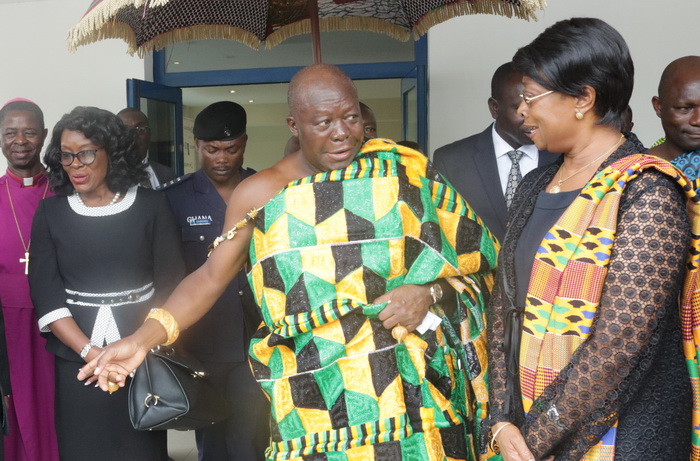
The Asantehene, Otumfuo Osei Tutu II, has questioned the quality of justice delivered in the sentence handed members of the pro-New Patriotic Party (NPP) vigilante group, the Delta Force, when the court slapped only a fine on the convicts.
He wondered if justice was served in that ruling and asked: “If even it has been served, the question may be asked whether the quality of justice was served.
“If such judgements came from the courts, how can you prevent people from questioning the quality of justice delivered by our judges?” he asked.
Bad lots
Otumfuo Osei Tutu, who was delivering the keynote address on the theme: “Quality judges delivering quality justice”, remarked that it would take only one case or very few cases for the quality of justice to be thrown to the wind.
“I hope and pray that by the end of this forum, the exact ramifications of quality justice will be more meaningfully appreciated, so that we can all be witnesses to the realisation of the theme of quality judges delivering quality judgements,” he stated.
It would be recalled that 13 members of the Delta Force were convicted by a district court last month for conspiracy to riot and rioting and fined GH¢1,800 each.
They were also to sign bonds to be of good behaviour for 12 months or in default go to jail for 12 months.
That was for their involvement in the fracas at the Regional Coordinating Council early this year over the appointment of Mr George Adjei as the Regional Security Liaison officer.
Quality justice
According to the Asantehene, quality justice was an essential component of the rule of law, saying that by convention “judicial activity is assessed by reference to the inherent quality of judicial decisions, namely, the quality of their reasoning and the dispatch with which those decisions are delivered”.
He said the quality of justice was what citizens felt out of litigation, their wishes and their aspirations, adding: “Quality of justice cannot be considered in the abstract; it must necessarily be related to the people for whom justice is delivered.
“We are at the receiving end for whom justice is intended to serve. It is the standard of the beneficiaries of justice that the quality is measured. Whether what the judge does in his delivery functions is qualitative or not is determined by us the beneficiaries.”
Consequently, he suggested that the people on whose behalf justice was being administered must always be taken into account, adding: “To ignore us amounts to failure to deliver justice because you cannot judge yourselves.”
“Whatever benchmarks you establish in pursuit of quality justice, prominence should be given to the expeditious disposal of cases, for ‘justice delayed is justice denied’,” he stated.
Chief Justice
The Chief Justice, Ms Justice Sophia Akuffo, noted that reforms in the justice system were too important to be left to lawyers and judges alone.
“To create and build a good justice delivery system, the people it serves have to be intimately involved,” she stated.
She said the theme for the 2017-2018 Legal Year had been chosen to enhance the critical standards for judges in the administration of justice.
She said it was one that elicited thought about the qualities and failings the justice delivery system or the Judicial Service needed to focus on and deal with, adding: “Both the public and the professionals have views on the theme from their own personal experiences or based on reactions to shortcomings in the judicial system.”
Those failings, according to Ms Justice Akuffo, included the slowness, cost, remoteness, complexity, resulting in an apparent lack of transparency, trust and public confidence.
“I am of the strong conviction that whether storm-battered or weather beaten, it is still a justice system around which a modern justice system can be rebuilt. We have come a great distance towards finding real solutions to the challenges in our judicial system,” she stated.




